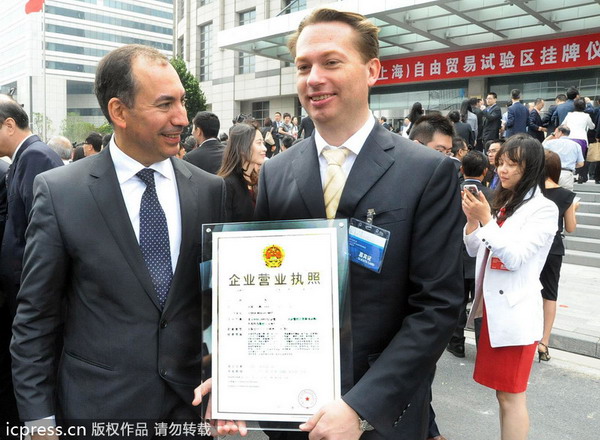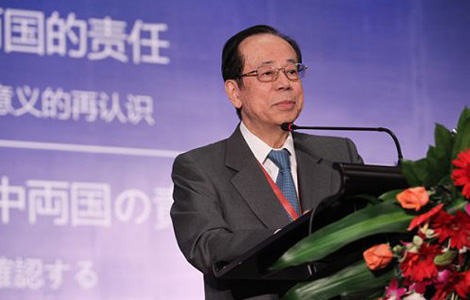Shanghai FTZ reform in full swing
Updated: 2013-10-29 09:17
(Xinhua)
|
|||||||||||
The FTZ will also be the outpost to test full convertibility of the Chinese currency renminbi, its use across national borders and liberalized interest rates.
The FTZ is currently in close contact with China's central bank, as well as the country's top banking, securities and insurance watchdogs to work out detailed plans to regulate freer financial activities within the zone.
So far four foreign banks -- Citibank, Development Bank of Singapore, Bank of East Asia and HSBC -- have established presence in the zone.
By loosening restrictions on foreign investment and a gradual relaxation of capital account, authorities want to see what works and what does not in an isolated area along the Yangtze delta and prepare for what can be implemented nationwide.
So the zone's mission, suggested by officials and analysts alike, is not to create another special economic zone with loose regulations and preferential policies, but to experiment with caution a set of reform measures deemed necessary to revitalize the world's second largest economy.
"We hope that the building of the FTZ will be an orderly reform rather than a once-and-for-all attempt that will bring chaos in supervision," said Lewis Lu, a partner with KPMG Advisory (China).
While authorities should take bold steps in liberalizing formerly closed sectors, they should also improve oversight with detailed and implementable policies, Lu added.
China vowed to open 23 areas across six industries in the service sector in the FTZ, according to a statement released prior to its opening. So far, 12 areas are ready for opening and seven are pending policy adjustments from the State Council, or China's Cabinet.
Another four areas involving shipping, banking and legal services still await detailed regulations from related state departments.
Related Stories
Can FTZ lead rest of nation in reform? 2013-10-29 07:26
Over 200 enterprises register in Shanghai FTZ 2013-10-28 20:48
Co-op between Taiwan and Shanghai FTZ proposed 2013-10-28 09:30
FTZ predicted to give boost to luxury hotel industry 2013-10-25 12:57
First FTZ land parcel sold 2013-10-24 15:51
FTZ predicted to give boost to luxury hotel industry 2013-10-24 07:35
Today's Top News
Spy scandal 'will weaken' US global credibility
Economies seek climate change aid
Medicare chief apologizes for 'Obamacare' woes
Courts ordered to maintain fairness
Party plenum to be held on Nov 9
Nepalese diplomat talks up ties with China
New consumer law to wipe out hidden fees
Think tank report focuses on new reforms
Hot Topics
Lunar probe , China growth forecasts, Emission rules get tougher, China seen through 'colored lens', International board,
Editor's Picks

|

|

|

|

|

|






